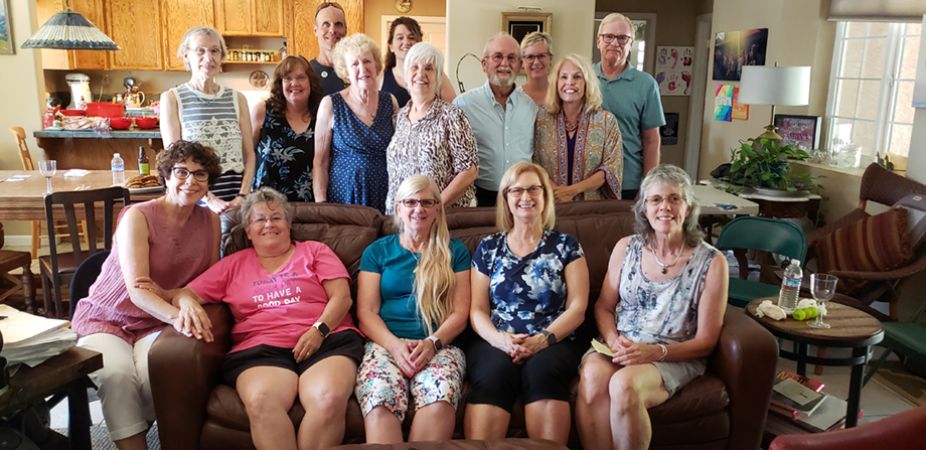
Trauma Recovery and Resilience for Separated Immigrant Families in the Borderlands
Trauma recovery and resilience has been building at the El Paso, Texas, – Juarez border for years.
In 2008-2009, long time mental health clinician Fabiola Ekleberry, LPC-S, NCC recognized a desperate need for informed trauma treatment in the El Paso community. El Paso is home to Fort Bliss, the largest installation of US Army Forces Command, and a short walk across the Rio Grande from Ciudad Juarez, Mexico, a drug cartel battleground at the time. In 2009 -2010, need for PSTD and trauma treatment was intense for thousands of returning soldiers, local citizen and immigrant workers caught in the crossfire of the brutal drug gang war. The trauma and treatment need has escalated exponentially at the El Paso Borderplex, with immigrant family-child separations, and detentions resulting from the United States new Zero Tolerance immigration policy.
Ekleberry trained in EMDR with Trauma Recovery/Humanitarian Assistance Programs (Trauma Recovery/HAP) in 2009, to use more trauma-informed therapies in this underserved community. Training and connecting with Trauma Recovery\HAP volunteers like Peggy Moore, fellow trainees and Trauma Recovery Network (TRN) members led her to realize the need for many more EMDR therapists and a forum for knowledge exchange and info sharing on treatment strategies to dramatically help everyone involved in recovery efforts. As president of Professional Counselors of El Paso (PCEP), she envisioned an annual conference bringing together research, treatment and humanitarian agencies in workshops to learn and strategize on trauma treatment and resilience problems.
Network Focused on Trauma Recovery
Ekleberry ‘s client work, role in PCEP and on-going relationship with Trauma Recovery/HAP opened connections to like-minded Trauma Recovery/HAP trained mental health professionals, Dee Blinka and Temperance Johnson, as well as academic leaders at the University of Texas, El Paso (UTEP) and senior advocates at border humanitarian relief agencies – Hope Border Institute and Catholic Charities. In collaboration, they have produced two internationally recognized conferences on trauma and resilience, igniting interest in EMDR in the region. This local group spearheads the grassroots initiatives to address the family separation/detention crisis in the area. It is hoped that their effort can inform a larger TRN -supported response focused on the crisis areas of Arizona, Florida, New Mexico, New York and Texas, and eventually extending to all 17 states holding detainees.
Milestones and Next Steps
Major milestones and success include a recent daylong symposium bringing together mental health professionals, academia, and humanitarian leaders to focus on family separation and detention challenges and responses. While they have not been allowed to see families or children yet, they have achieved significant successes and a means to their goals:
Therapist Preparation: Ekleberry, Blinka and Peggy Moore called Trauma Recovery/HAP in efforts to meet the need. Executive Director Carol Martin quickly mobilized resources for low cost training initiatives. Trauma Recovery/HAP EMDR 1 training will be held in November for over 40 therapists, EMDR 2 will take place in January and an RTEP/GTEP training refresher will be held in December 2018, to prepare a large body of therapists to treat children and families, in cooperation with Catholic Charities where the trainings will be hosted.
Organizing response: Mental health practitioners, academia and humanitarian aid agencies have united into a cohesive body with on-going communication, collaboration and united response efforts, including access to immigration attorneys, aid organizations caring for detainees, and demonstrations and marches. Every interaction has formed connections to additional assistance leaders and politicians engaged in resolving the crisis.
Work with immigration attorneys serving detainees: a two-pronged effort, bilingual therapists will help attorneys deal with and diffuse the trauma of the children and families they are working with to prepare their cases, rather than further traumatize them through reiteration of their story. Secondly, EMDR-trained therapists will train attorneys in self-care to better deal with the exhaustion they are experiencing.
Future treatment: it is believed that work with and through the immigration attorneys at the border will eventually provide direct access to the children in border detention camps.
Trauma Recovery/ Humanitarian Assistance Programs is proud to be working with these inspired mental health leaders, and wish them success and energy as they bring hope to the detainees.